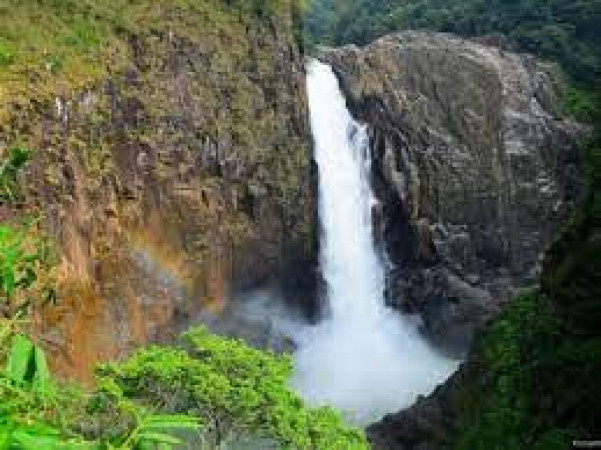Simsang Travel Guide
Simsang, located in India, is a hidden gem waiting to be explored. This region is rich in history, with its roots dating back centuries. The geography of Simsang is diverse, offering lush green landscapes, majestic mountains, and serene rivers. The cultural significance of Simsang is reflected in its vibrant festivals, traditional music, and warm hospitality. Simsang is famous for its breathtaking natural beauty and unique indigenous culture.Top Attractions in Simsang
- Explore the mesmerizing Simsang River
- Visit the ancient Nokrek National Park
- Experience the rich Garo tribal culture
- Hike to the stunning Simsang Falls
- Discover the mystical Siju Caves
Simsang is Famous for
Natural beauty and indigenous Garo tribal culture.Top Attractions in Simsang
- Embark on a river cruise on Simsang River
- Witness the unique Living Root Bridges
- Attend the vibrant Wangala Festival
- Explore the diverse wildlife at Balpakram National Park
- Shop for traditional handicrafts at local markets
What's Great about Travelling to Simsang?
- Perfect destination for nature lovers
- Great cultural immersion with the Garo tribe
- Off the beaten path experience
What's Not So Great about Travelling to Simsang?
- Limited modern amenities
- Challenges in transportation
- Language barrier for non-local languages
Travel Tips for Simsang
- Obtain necessary permits for tribal areas
- Respect local customs and traditions
- Pre-book accommodations in advance
Important Simsang trip information
- Ideal Duration: 5-7 days
- Best Time to Visit: October to March
- Nearby Airports and Railway Stations: Guwahati Airport and Guwahati Railway Station
FAQ's on Simsang
Q1: What is the best time to visit Simsang?
The best time to visit Simsang is during the dry season, which typically falls between November and April. This period offers pleasant weather with clear skies, making it ideal for outdoor activities and sightseeing. Avoid the rainy season from May to October, as heavy rainfall can lead to flooding and difficult travel conditions.
Q2: Do I need a visa to travel to Simsang?
Most visitors to Simsang require a visa for entry. It is recommended to check with the embassy or consulate of Simsang in your country for specific visa requirements. Some nationalities may be eligible for visa exemptions or visa-on-arrival options, so it's essential to verify the latest regulations before your trip.
Q3: What are the must-visit attractions in Simsang?
Simsang boasts a range of must-visit attractions, including the stunning Simsang River, Nokrek National Park with its unique wildlife, and the picturesque Simsang Double Decker Living Root Bridge. Don't miss exploring the local villages, experiencing the indigenous cultures, and trekking through the lush green landscapes.
Q4: Is Simsang a safe place to travel?
Simsang is generally considered safe for travelers. However, it's advisable to exercise caution in crowded areas, safeguard your belongings, and be aware of your surroundings. Avoid isolated areas at night and follow any local safety advisories. Overall, practicing common sense and being vigilant will contribute to a safe and enjoyable trip.
Q5: What is the local currency in Simsang and can I use credit cards?
The local currency in Simsang is the . While some establishments may accept credit cards in major cities, it's recommended to carry cash for transactions in smaller towns and rural areas. ATMs are available in urban centers, so ensure you have enough cash for remote locations.
Q6: What is the local cuisine like in Simsang?
Simsang offers a diverse culinary experience, with a focus on fresh ingredients and bold flavors. Try traditional dishes like Jadoh (rice and meat dish), Dohneiiong (pork with black sesame), and Nakham Bitchi (fermented fish chutney). Vegetarians can enjoy options like Jhur Sideh (mixed vegetable stew) and Tungrymbai (fermented soybean paste).
Q7: What transportation options are available in Simsang?
Transportation options in Simsang include public buses, shared taxis, and rental cars. While public transport is affordable, renting a car offers more flexibility for exploring remote areas. Taxis are readily available in cities for short distances. Consider hiring a local guide for navigating challenging terrains or remote villages.
Q8: Are there any cultural norms or etiquette I should be aware of when visiting Simsang?
Respect for local customs is essential in Simsang. When visiting villages or interacting with indigenous communities, seek permission before taking photographs and adhere to dress codes. Greet locals with a smile and a handshake, and be mindful of cultural sensitivities. Avoid public displays of affection and follow any specific etiquette guidelines communicated by hosts.
Q9: I am a travel agent. How can I buy travel leads of Simsang?
Register yourself as a travel agent at agents.tripclap.com and then you can buy travel leads to Simsang once your account is approved. For more details contact our support team at +91-8069186564 or support@tripclap.com

